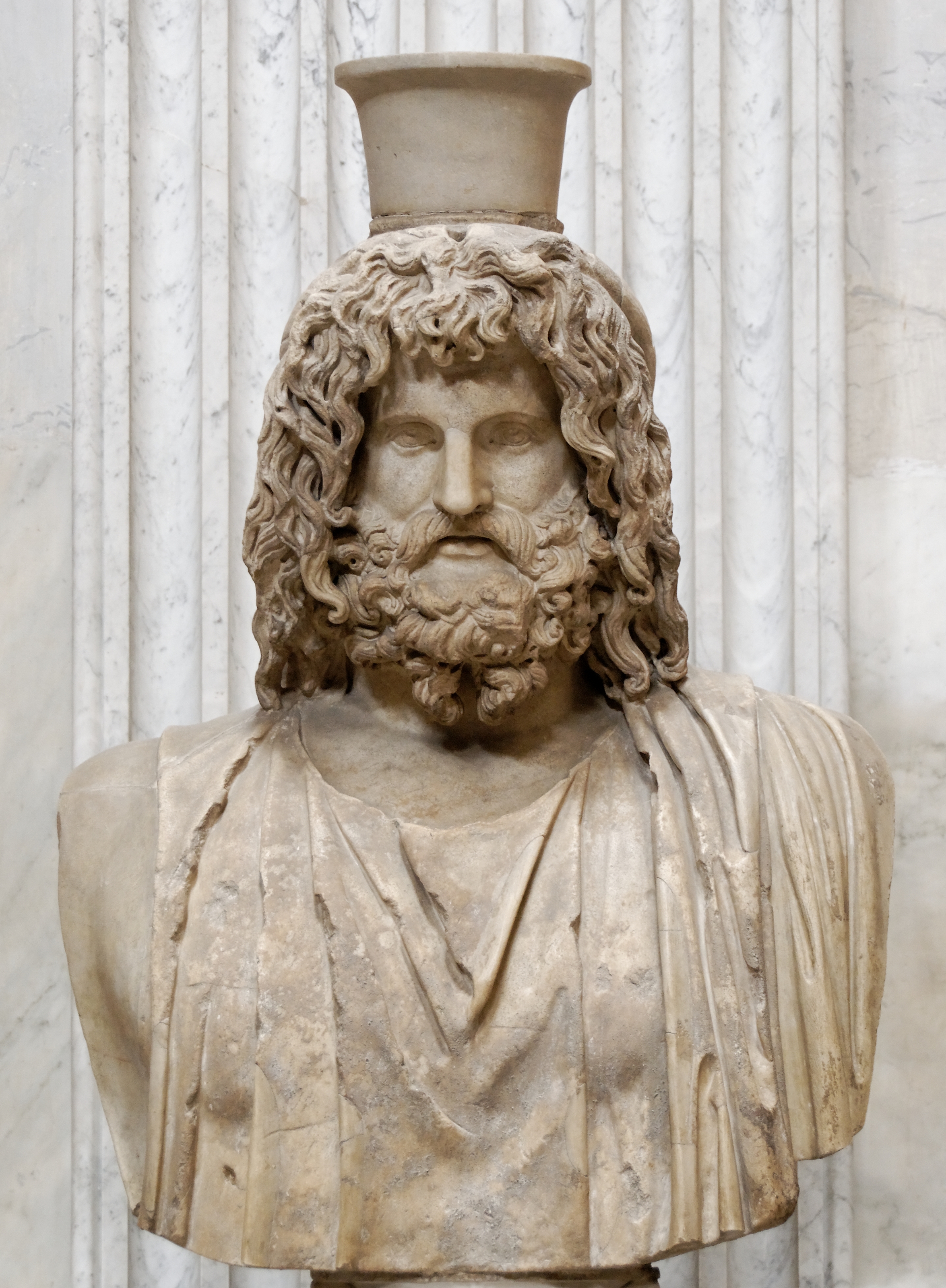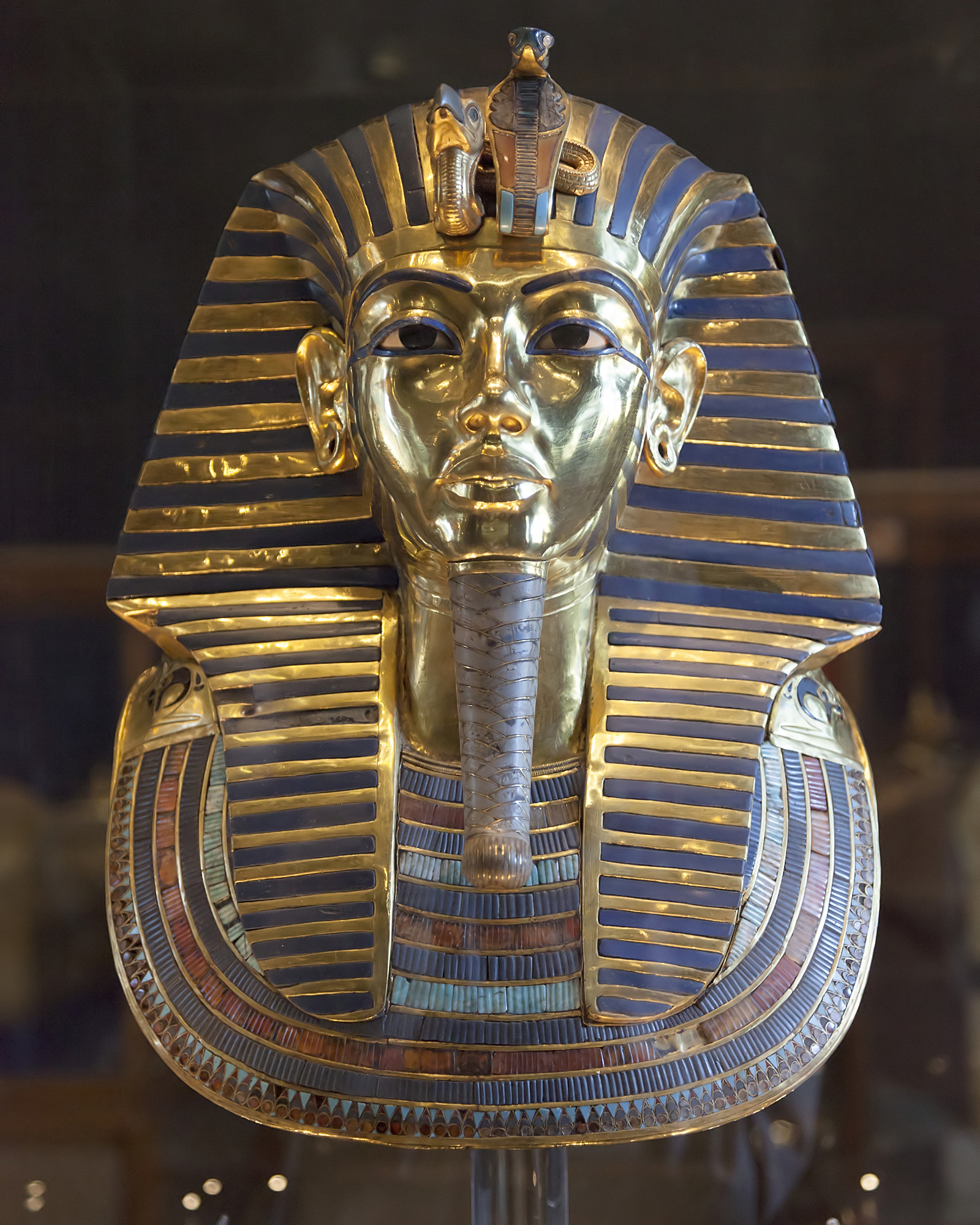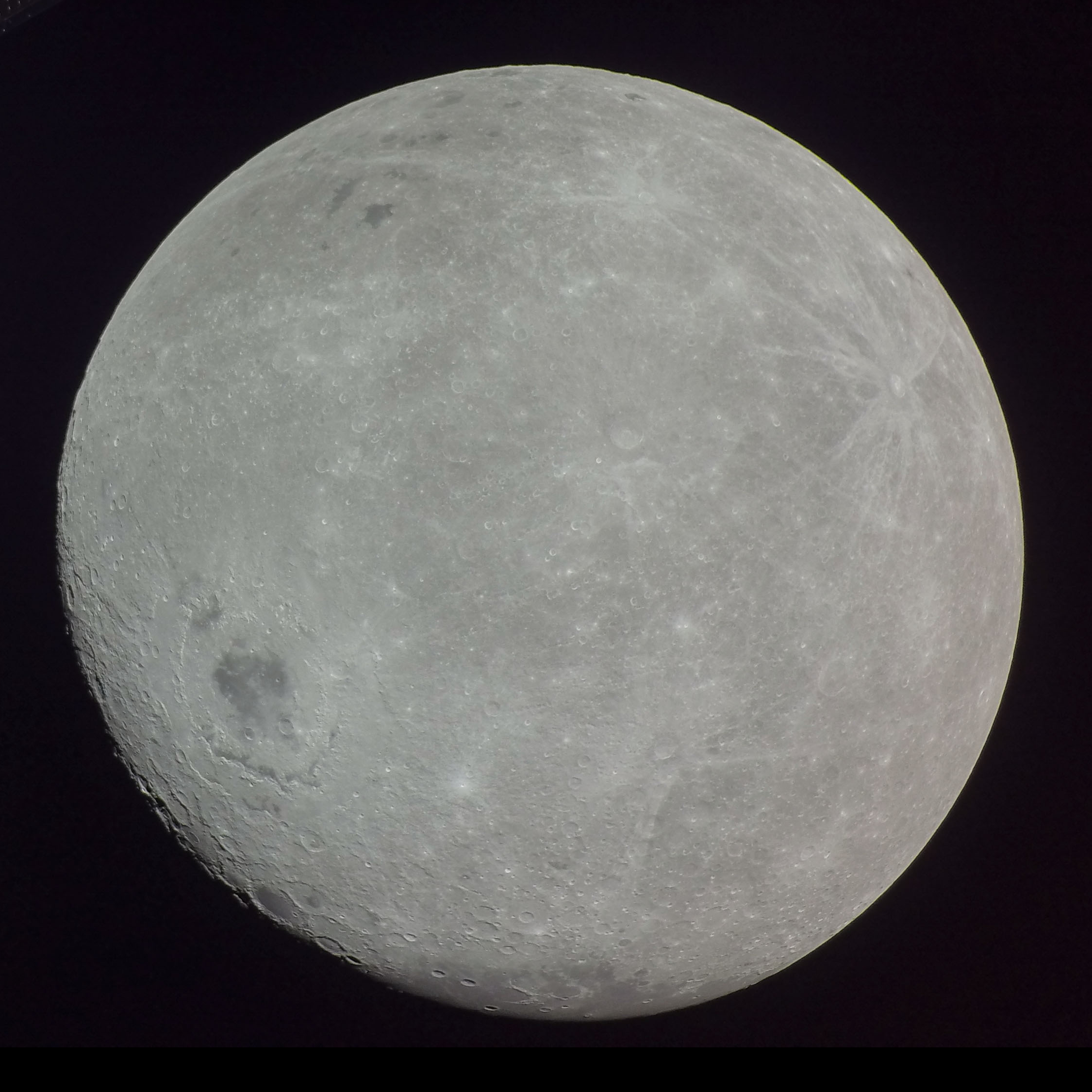|
Hellenistic Religion
The concept of Hellenistic religion as the late form of Ancient Greek religion covers any of the various systems of beliefs and practices of the people who lived under the influence of ancient Greek culture during the Hellenistic period and the Roman Empire ( 300 BCE to 300 CE). There was much continuity in Hellenistic religion: people continued to worship the Greek gods and to practice the same rites as in Classical Greece. Change came from the addition of new religions from other countries, including the Egyptian deities Isis and Serapis, and the Syrian gods Atargatis and Hadad, which provided a new outlet for people seeking fulfillment in both the present life and the afterlife. The worship of deified Hellenistic rulers also became a feature of this period, most notably in Egypt, where the Ptolemies adapted earlier Egyptian practices and Greek hero-cults and established themselves as Pharaohs within the new syncretic Ptolemaic cult of Alexander III of Macedonia. Elsewhe ... [...More Info...] [...Related Items...] OR: [Wikipedia] [Google] [Baidu] [Amazon] |
Serapis Pio-Clementino Inv689 N2
Serapis or Sarapis is a Graeco-Egyptian god. A syncretic deity derived from the worship of the Egyptian Osiris and Apis, Serapis was extensively popularized in the third century BC on the orders of Greek Pharaoh Ptolemy I Soter, as a means to unify the Greek and Egyptian subjects of the Ptolemaic Kingdom. The of Serapis was spread as a matter of deliberate policy by subsequent Ptolemaic kings. Serapis continued to increase in popularity during the Roman Empire, often replacing Osiris as the consort of Isis in temples outside Egypt. Alongside his Egyptian roots he gained attributes from other deities, such as chthonic powers linked to the Greek Hades and Demeter, and benevolence derived from associations with Dionysus. Etymology Originally known as Demotic , ('Osiris- Apis'), the name of the deity is derived from the syncretic worship of Osiris and the bull Apis as a single deity under the Egyptian name . This name was later written in Coptic as ((transliteration, cop, Userh ... [...More Info...] [...Related Items...] OR: [Wikipedia] [Google] [Baidu] [Amazon] |
Pharaoh
Pharaoh (, ; Egyptian language, Egyptian: ''wikt:pr ꜥꜣ, pr ꜥꜣ''; Meroitic language, Meroitic: 𐦲𐦤𐦧, ; Biblical Hebrew: ''Parʿō'') was the title of the monarch of ancient Egypt from the First Dynasty of Egypt, First Dynasty () until the Roman Egypt, annexation of Egypt by the Roman Republic in 30 BCE. However, the equivalent Egyptian language, Egyptian word for "king" was the term used most frequently by the ancient Egyptians for their monarchs, regardless of gender, through the middle of the Eighteenth Dynasty during the New Kingdom of Egypt, New Kingdom. The earliest confirmed instances of "pharaoh" used contemporaneously for a ruler were a letter to Akhenaten (reigned –1336 BCE) or an inscription possibly referring to Thutmose III (–1425 BCE). In the early dynasties, ancient Egyptian kings had as many as ancient Egyptian royal titulary, three titles: the Horus name, Horus, the prenomen (Ancient Egypt), Sedge and Bee (wikt:nswt-bjtj, ''nswt-bjtj''), and ... [...More Info...] [...Related Items...] OR: [Wikipedia] [Google] [Baidu] [Amazon] |
Zeus
Zeus (, ) is the chief deity of the List of Greek deities, Greek pantheon. He is a sky father, sky and thunder god in ancient Greek religion and Greek mythology, mythology, who rules as king of the gods on Mount Olympus. Zeus is the child of Cronus and Rhea (mythology), Rhea, the youngest of his siblings to be born, though sometimes reckoned the eldest as the others required disgorging from Cronus's stomach. In most traditions, he is married to Hera, by whom he is usually said to have fathered Ares, Eileithyia, Hebe (mythology), Hebe, and Hephaestus.Hard 2004p. 79 At the oracle of Dodona, his consort was said to be Dione (Titaness/Oceanid), Dione, by whom the ''Iliad'' states that he fathered Aphrodite. According to the ''Theogony'', Zeus's first wife was Metis (mythology), Metis, by whom he had Athena.Hesiod, ''Theogony'886900 Zeus was also infamous for his erotic escapades. These resulted in many divine and heroic offspring, including Apollo, Artemis, Hermes, Persephone, D ... [...More Info...] [...Related Items...] OR: [Wikipedia] [Google] [Baidu] [Amazon] |
Twelve Olympians
file:Greek - Procession of Twelve Gods and Goddesses - Walters 2340.jpg, upright=1.8, Fragment of a Hellenistic relief sculpture, relief (1st century BC1st century AD) depicting the twelve Olympians carrying their attributes in procession; from left to right: Hestia (scepter), Hermes (winged cap and staff), Aphrodite (veiled), Ares (helmet and spear), Demeter (scepter and wheat sheaf), Hephaestus (staff), Hera (scepter), Poseidon (trident), Athena (owl and helmet), Zeus (thunderbolt and staff), Artemis (bow and quiver) and Apollo (lyre) from the Walters Art Museum. In ancient Greek religion and Greek mythology, mythology, the twelve Olympians are the major Deity, deities of the Greek Pantheon (religion), pantheon, commonly considered to be Zeus, Poseidon, Hera, Demeter, Aphrodite, Athena, Artemis, Apollo, Ares, Hephaestus, Hermes, and either Hestia or Dionysus. They were called ''Olympians'' because, according to tradition, they resided on Mount Olympus. Besides the twelve Olym ... [...More Info...] [...Related Items...] OR: [Wikipedia] [Google] [Baidu] [Amazon] |
Korinth BW 2017-10-10 10-55-28
Corinth ( ; , ) is a municipality in Corinthia in Greece. The successor to the ancient city of Corinth, it is a former municipality in Corinthia, Peloponnese, which is located in south-central Greece. Since the 2011 local government reform, it has been part of the municipality of Corinth, of which it is the seat and a municipal unit. It is the capital of Corinthia. It was founded as Nea Korinthos (), or New Corinth, in 1858 after an earthquake destroyed the existing settlement of Corinth, which had developed in and around the site of the ancient city. History Corinth derives its name from Ancient Corinth, a city-state of antiquity. The site was occupied from before 3000 BC. Ancient Greece Historical references begin with the early 8th century BC, when ancient Corinth began to develop as a commercial center. Between the 8th and 7th centuries, the Bacchiad family ruled Corinth. Cypselus overthrew the Bacchiad family, and between 657 and 585 BC, he and his son Periander r ... [...More Info...] [...Related Items...] OR: [Wikipedia] [Google] [Baidu] [Amazon] |
Epicureanism
Epicureanism is a system of philosophy founded 307 BCE based upon the teachings of Epicurus, an ancient Greek philosopher. Epicurus was an atomist and materialist, following in the steps of Democritus. His materialism led him to religious skepticism and a general attack on superstition and divine intervention. Epicureanism was originally a challenge to Platonism, and its main opponent later became Stoicism. It is a form of hedonism insofar as it declares pleasure to be its sole intrinsic goal. However, the concept that the absence of pain and fear constitutes the greatest pleasure, and its advocacy of a simple life, make it very different from hedonism as colloquially understood. Following the Cyrenaic philosopher Aristippus, Epicurus believed that the greatest good was to seek modest, sustainable pleasure in the form of a state of '' ataraxia'' (tranquility and freedom from fear) and ''aponia'' (the absence of bodily pain) through knowledge of the workings of the world a ... [...More Info...] [...Related Items...] OR: [Wikipedia] [Google] [Baidu] [Amazon] |
Stoicism
Stoicism is a school of Hellenistic philosophy that flourished in ancient Greece and Rome. The Stoics believed that the universe operated according to reason, ''i.e.'' by a God which is immersed in nature itself. Of all the schools of ancient philosophy, Stoicism made the greatest claim to being utterly systematic. The Stoics provided a unified account of the world, constructed from ideals of logic, monistic physics, and naturalistic ethics. These three ideals constitute virtue which is necessary for 'living a well reasoned life', seeing as they are all parts of a logos, or philosophical discourse, which includes the mind's rational dialogue with itself. Stoicism was founded in the ancient Agora of Athens by Zeno of Citium around 300 BC, and flourished throughout the Greco-Roman world until the 3rd century AD, and among its adherents was Roman Emperor Marcus Aurelius. Along with Aristotelian term logic, the system of propositional logic developed by the Stoics was one of th ... [...More Info...] [...Related Items...] OR: [Wikipedia] [Google] [Baidu] [Amazon] |
Hellenistic Philosophy
Hellenistic philosophy is Ancient Greek philosophy corresponding to the Hellenistic period in Ancient Greece, from the death of Alexander the Great in 323 BC to the Battle of Actium in 31 BC. The dominant schools of this period were the Stoics, the Epicureans and the Academic Skepticism, Skeptics. Background The Preceding classical period in Ancient Greek philosophy had centered around Socrates (c. 470–399 BC), whose students Antisthenes, Aristippus, and Plato went on to found Cynicism (philosophy), Cynicism, Cyrenaicism, and Platonism, respectively. Plato taught Aristotle who created the Peripateticism, Peripatetic school and in turn, had tutored Alexander the Great. Socrates' thought was therefore influential for many of these schools of the period, leading them to focus on ethics and how to reach ''eudaimonia.'' Early Platonism, known as the "Old Academy" begins with Plato, followed by Speusippus (Plato's nephew), who succeeded him as the head of school (until 339 ... [...More Info...] [...Related Items...] OR: [Wikipedia] [Google] [Baidu] [Amazon] |
Planet
A planet is a large, Hydrostatic equilibrium, rounded Astronomical object, astronomical body that is generally required to be in orbit around a star, stellar remnant, or brown dwarf, and is not one itself. The Solar System has eight planets by the most restrictive definition of the term: the terrestrial planets Mercury (planet), Mercury, Venus, Earth, and Mars, and the giant planets Jupiter, Saturn, Uranus, and Neptune. The best available theory of planet formation is the nebular hypothesis, which posits that an interstellar cloud collapses out of a nebula to create a young protostar orbited by a protoplanetary disk. Planets grow in this disk by the gradual accumulation of material driven by gravity, a process called accretion (astrophysics), accretion. The word ''planet'' comes from the Greek () . In Classical antiquity, antiquity, this word referred to the Sun, Moon, and five points of light visible to the naked eye that moved across the background of the stars—namely, Me ... [...More Info...] [...Related Items...] OR: [Wikipedia] [Google] [Baidu] [Amazon] |
Moon
The Moon is Earth's only natural satellite. It Orbit of the Moon, orbits around Earth at Lunar distance, an average distance of (; about 30 times Earth diameter, Earth's diameter). The Moon rotation, rotates, with a rotation period (lunar day) that is synchronized to its orbital period (Lunar month#Synodic month, lunar month) of 29.5 Earth days. This is the product of Earth's gravitation having tidal forces, tidally pulled on the Moon until one part of it stopped rotating away from the near side of the Moon, near side, making always the same lunar surface face Earth. Conversley, the gravitational pull of the Moon, on Earth, is the main driver of Earth's tides. In geophysical definition of planet, geophysical terms, the Moon is a planetary-mass object or satellite planet. Its mass is 1.2% that of the Earth, and its diameter is , roughly one-quarter of Earth's (about as wide as the contiguous United States). Within the Solar System, it is the List of Solar System objects by ... [...More Info...] [...Related Items...] OR: [Wikipedia] [Google] [Baidu] [Amazon] |
Hellenistic Astrology
Hellenistic astrology is a tradition of horoscopic astrology that was developed and practiced in the late Hellenistic period in and around the Mediterranean Basin region, especially in Egypt. The texts and technical terminology of this tradition of astrology were largely written in Greek (or sometimes Latin). The tradition originated sometime around the late 2nd or early 1st century BCE, and then was practiced until the 6th or 7th century CE. This type of astrology is commonly referred to as "Hellenistic astrology" because it was developed in the late Hellenistic period, although it continued to be practiced for several centuries after the end of what historians usually classify as the Hellenistic era. History The origins of much of the astrology that would later develop in Asia, Europe and the Middle East are found among the ancient Babylonians and their system of celestial omens that began to be compiled around the middle of the 2nd millennium BC, 2nd millennium BCE. This sys ... [...More Info...] [...Related Items...] OR: [Wikipedia] [Google] [Baidu] [Amazon] |
Amulet
An amulet, also known as a good luck charm or phylactery, is an object believed to confer protection upon its possessor. The word "amulet" comes from the Latin word , which Pliny's ''Natural History'' describes as "an object that protects a person from trouble". Anything can function as an amulet; items commonly so used include statues, coins, drawings, plant parts, animal parts, and written words. Amulets which are said to derive their extraordinary properties and powers from magic or those which impart luck are typically part of folk religion or paganism, whereas amulets or Sacramental, sacred objects of Organized religion, formalised mainstream religion as in Christianity are believed to have no power of their own without faith in Jesus and being blessing, blessed by a clergyman, and they supposedly will also not provide any preternatural benefit to the bearer who does not have an Disposition#Religion, appropriate disposition. Talisman and amulets have interchangeable meanings. ... [...More Info...] [...Related Items...] OR: [Wikipedia] [Google] [Baidu] [Amazon] |









